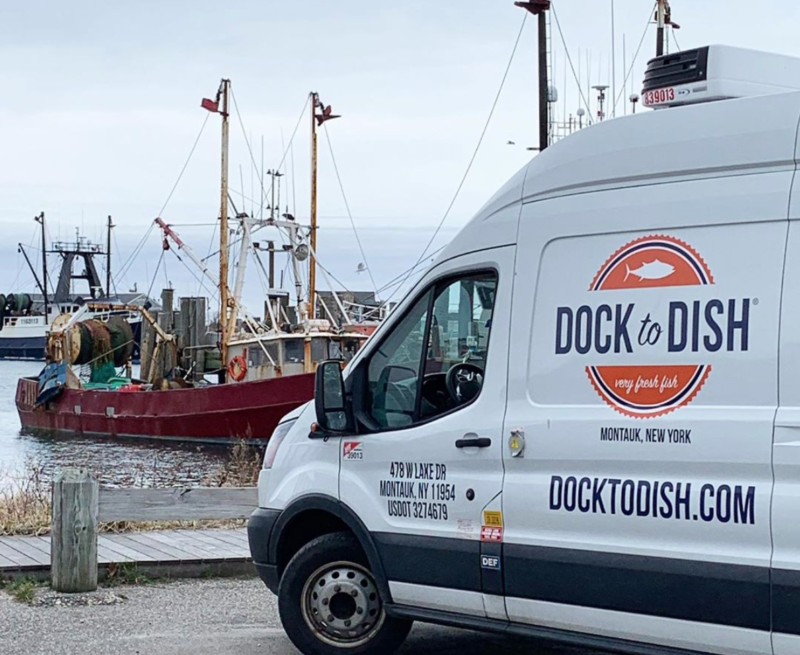Independent fishermen and small- to medium-sized seafood business are calling on the Trump administration and Congress to come up with an additional $1.5 billion in covid-19 emergency funding, and new investment to build community-based supply chains to feed Americans.
The $300 million allocated for the industry by the CARES Act will help, but “it will not adequately mitigate the unprecedented losses that have been suffered nor the impacts that we anticipate over the coming months,” according to the letter, co-signed by a coalition of 238 including commercial fishing trade associations, seafood businesses, food and agriculture groups, and environmental and social justice advocates.
Much more is needed in “additional support from the federal government to maintain our livelihoods and supply essential food from the ocean to the American public,” the coalition warned in the letter – and with a video released on YouTube.
The letter makes detailed recommendations in five areas, including emergency aid; payroll protection and debt forgiveness for fishing businesses; resources to build up local supply chains; medical care and protective measures for fishermen and seafood workers; and getting more seafood supplied into the Department of Agriculture’s $19 billion Coronavirus Food Assistance Program.
The USDA announced this week it will speed a combined $40 million purchasing seafood through its Agricultural Marketing Service that supplies food banks and other public needs. The money would be split evenly between Alaska pollock and Northeast Atlantic pollock, haddock and redfish.
The coalition letter — addressed to the departments of Commerce, Agriculture and Treasury and Congressional leadership — came out of collaboration among the Local Catch Network, a bicoastal organization connecting and promoting producers, suppliers and consumers of locally sourced seafood.
The network has held a series of online webinars to help fishermen navigate new direct marketing channels, and the idea for a letter to federal decisionmakers came from a Congressional staffer who participated in a session, said Brett Tolley of the Northwest Atlantic Marine Alliance, one of the organizers.
Local Catch usually doesn’t do a lot of work on government policy, but a number of members worked together over about 10 days, including soliciting ideas from network participants. That brought in about 100 responses with recommendations to help fashion the letter.
The covid-19 epidemic has forced the fishing industry to pivot to new supply routes and sales, and “there’s no template that can apply to every community,” said Tolley.
“In the last couple of weeks, we’re seeing more of these systems evolve. The demand is clearly there,” with direct, dock-to-consumer sales events drawing long lines, said Tolley. A few local efforts are starting to build supply relationships with local institutions, such as schools and even a hospital, and that could be one way to build volume and consistency for new networks, he said.
“We feel like this could be a moment, if the investment is made and makes its way into these communities to build that infrastructure,” said Tolley.
Specific recommendations include targeting the $1.5 billion in additional aid to designate “at least 50 percent of relief funds for small and medium-scale operations to ensure that disaster assistance is fairly distributed to a diverse range of seafood harvesters and businesses.”
The letter notes how fishermen and suppliers are pivoting to direct sales. “However, to make this shift on a broader scale, fishermen and seafood suppliers need an immediate expansion of community-driven shoreside infrastructure that allows them to bring traceable, quality seafood to consumers,” it adds.
“Government investments in infrastructure would both meet immediate needs and strengthen local and regional seafood systems in the long term,” the coalition stated. “We also recommend grant programs for young fishermen to obtain first-time fishing and shellfish permits and funding for a seafood marketing program within NOAA that includes advertising resources and additional support for direct-to-consumer markets.”
Small suppliers and community supported fisheries, or CSFs, have long labored to rebuild local seafood supply chains and “now more than ever they’re really stepping up,” said Sean Barrett, co-founder of Dock to Dish, a CSF program based at Montauk, N.Y.
Since its founding in 2012 Dock to Dish had built into a network supplying restaurants, and with the pandemic it is returning to its roots with a new initiative for making no-contact deliveries from its filleting facility. A first phase in May aims to sign up 1,000 New York State residents to start, said Barrett.
“With all kinds of pandemonium going on in the fleet, how do we get this protein to the public who need it?” said Barrett. That includes figuring out new distribution and delivery, covid-19 safety protocols – Dock to Dish is adding a nurse to its staff to oversee safeguards – and planning for the future.
“In the post-pandemic world that we’re moving toward, we’re going to have to do things differently,” he said.
“As fishermen and business owners, we pride ourselves in our independence and grit; however, covid-19 has had devastating impacts on our industry with a growing number of us on the verge of losing our businesses, homes, and boats,” the letter concludes. “We appreciate the federal government’s efforts to keep us afloat during this unprecedented storm and encourage your agency to be a continued champion for America’s fishing industry and the millions of Americans who depend on it.”







